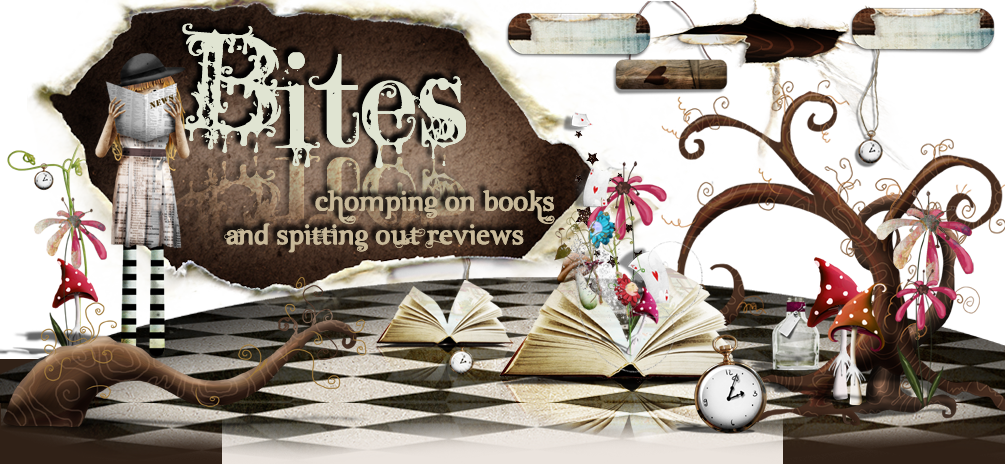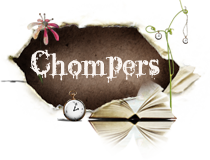Pub date: August 7, 2012.
Author website.
Uprooted from Shanghai with her father and twin brother, young Cassandra finds the Black Isle's bustling, immigrant-filled seaport, swampy jungle, and grand rubber plantations a sharp contrast to the city of her childhood. And she soon makes another discovery: the Black Isle is swarming with ghosts.
Haunted and lonely, Cassandra at first tries to ignore her ability to see the restless apparitions that drift down the street and crouch in cold corners at school. Yet despite her struggles with these spirits, Cassandra comes to love her troubled new home. And soon, she attracts the notice of a dangerously charismatic man.
Even as she becomes a fearless young woman, the Isle's dark forces won't let her go. War is looming, and Cassandra wonders if her unique gift might be her beloved island's only chance for salvation . . . (netgalley.com)
I was floored with THE BLACK ISLE from the second I started reading it. Written in a voice that's so incredibly engaging that you can't take your eyes from the page, it sucks you into an old world China where women are barely second class citizens and, depending on your status, superstition rules your life.
Cassandra goes through an epic transformation throughout the book. The story starts with Cassandra as an old woman both running from and to her past. She relives the world of her island through an out-of-print book at the library. When she find that "her" book has been desecrated, her world gets rocked. And infiltrated, by a less-than-welcome guest that wants Cassandra's story. The plot flips back to the present a few times throughout the book, reminding the reader that Cassandra is narrating the story to someone, that there's a reason for this recounting.
When the greater story begins, Cassandra is Ling, twin of Li, the latter the more favored child because of his male status and the fact that Cassandra hogged the goods in the womb. So while she came out nice and healthy Li was a bit starved. To see the dynamic between brother and sister based on the parents' behavior was, at times, horrifying to watch. They're twins so they share the same birthday except Cassandra didn't get gifts. Those were reserved for the favored son. It's a cultural aspect that I had a hard time getting over and it really bothered me to read.
I'll admit, Chinese culture isn't something I'm crazy about but the ghost story aspect of THE BLACK ISLE drew me in and I actually learned quite a few things about the culture. And it even answered a few of my questions about the people in general. I'd like to believe that a story so rich in Chinese culture would, in the same breath, be accurate as well. I believed everything I read without a blink but you'll have to ask someone better versed in Chinese culture just how close it all is. Right now I have no reason to doubt any of it.
It's not too long into the story that things take a turn for the strange and Cassandra starts being able to see ghosts. It actually coincides with an incident in the park involving Li and their subsequent distancing. That incident, though, I don't think is very realized. It serves as a catalyst to get the twins apart (they were pretty much inseparable until that point) and then it comes back in at the end. But it doesn't do much for character-building. I thought it was going to have some greater impact on Li other than just a personality shift but there wasn't much. He got cranky for a little while but that was about it.
When they up and moved to the Isle you get the full realization of just how incompetent Cassandra's father is and how reliant he is on his children to do his job. I was flabbergasted by this and how long both of them actually put up with his ineptitude. And it wasn't he just didn't have the smarts for it. He just had better things to do with his time and it really angered his kids, especially when it was entirely their doing that got the plantation they moved to up and running and the workers in order. Of course their job was thankless.
There was a tryst between Cassandra and Li that really bothered me and it's another aspect of the story that I'm not sure how relevant it is to the greater plot. Like I said I'm unfamiliar with Chinese culture but the ease with which the siblings entered into a sexual relationship really took me aback. Was this okay because they're twins? They hid it from their father so there was some level of shame there; just not a lot. I was bothered by it, by its casual attitude and then it's relevance was gone. It served its purpose for the plot at the moment but, like the incident in the park, I don't think it served it's purpose to the greater story.
Cassandra is a character trying desperately to be her own person. She breaks off from her father and brother and gets a job on her own after finishing her schooling. That job brings her to her fiancee, the son of her school's proprietor, and she's elevated into a social strata that she wouldn't otherwise be in. Of course the male members of her family resent her for it. She's supposed to be subservient to her father and brother, not rise above them. But she was determined to make her own way, albeit on the backs of wealthier others. It's because of this that she officially changes her name from Ling to Cassandra.
As time progressed in the story itself it does come across, a bit, as Cassandra effectively whoring her way into the best possible scenarios for herself. She does appear to have feelings for two of the three suitors in the story but their positions in society sway my feelings about her a bit and make her look a bit like a gold digger. These were opportune matches. She just happened to have feelings for them as well. But I don't believe she would have entered into those relationships simply for the status. I do believe she loved two of the three. I just think the author wrote it in such a way as to make the reader see, just slightly, what other people might see in Cassandra. She is not a woman that actually worked her way up from the dredges. She was well-placed, well-timed and well-suited. Not her fault but it is convenient.
The second suitor? Well he's not really a suitor. He was one of the occupying soldiers when Japan invaded and kept Cassandra locked in her fiance's house and raped her repeatedly and referred to her as his wife. It was a very weird situation and Taro absolutely took advantage of everything he could about her. He kept her compliant to his whims by dangling her would-be family and friends in front of her. It was a horrible situation and throughout, since it's in first person, you know that she's doing it for other people, for Daniel and her brother although I don't doubt some level of self-preservation. No one wants to die, not really. So I don't begrudge her that.
It takes Cassandra a while to come into accepting her abilities. Issa, a shaman of sorts, tries to teach her but she bails, afraid of what she's getting into. Years later she realizes that there is a benefit to working with the damned, at a heavy price, of course. The ghosts of the Isle become tools for everyone to use, from Cassandra to prove a point, to suitor number three to get the island where he wants it to be. It's not until she's much older that she fully realizes the total repercussions of what she can do, what she can see and how it affects not just her but everyone.
THE BLACK ISLE is a story about growth fueled by ghosts. Ling/Cassandra denies her true self for a long time but slowly she comes into her own, taking hold of who she really is and embracing it, at times not fully understanding what it is she's undertaking. The ghosts are a prominent aspect of the story but I wouldn't necessarily call THE BLACK ISLE a ghost story. It's a coming-of-age and moving past it. It's accepting your past and knowing when revenge has already been paid. I can't say enough good things about it. The voice is PHENOMENAL, balancing an elegant prose with a relatable one resulting in a story that anyone can love and get drawn into. I'm so glad I opted to read this. It called out to me from the NetGalley list and for good reason. There are some books in your life that will leave a lasting impression for any number of reasons. THE BLACK ISLE is one of mine.
Ban Factor: High - A foreign culture and religion and ghosts. Oh noes!











































